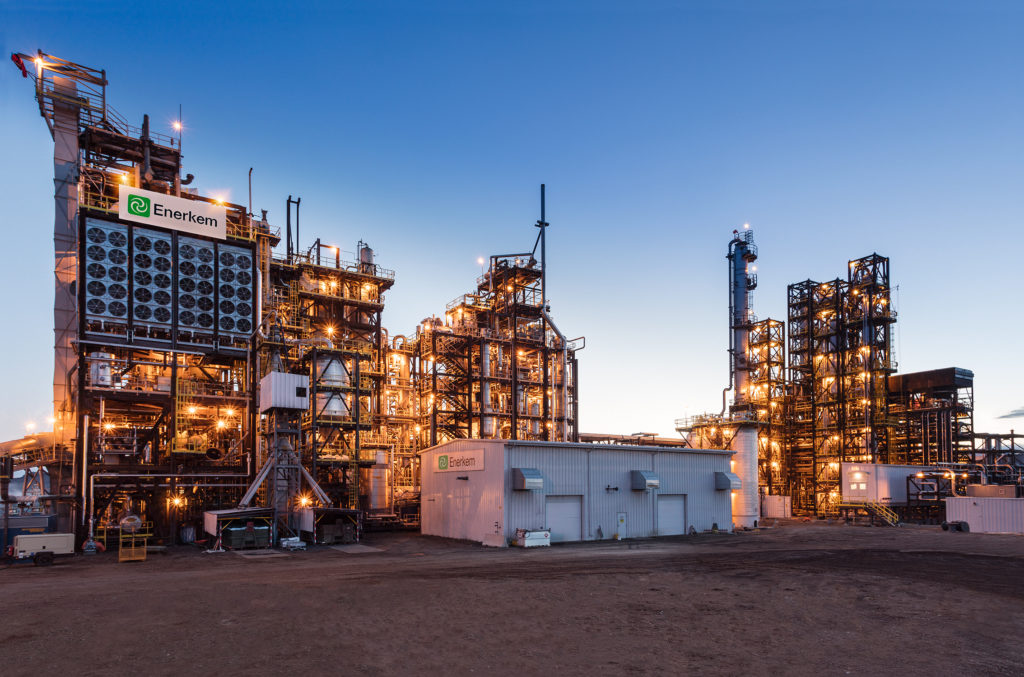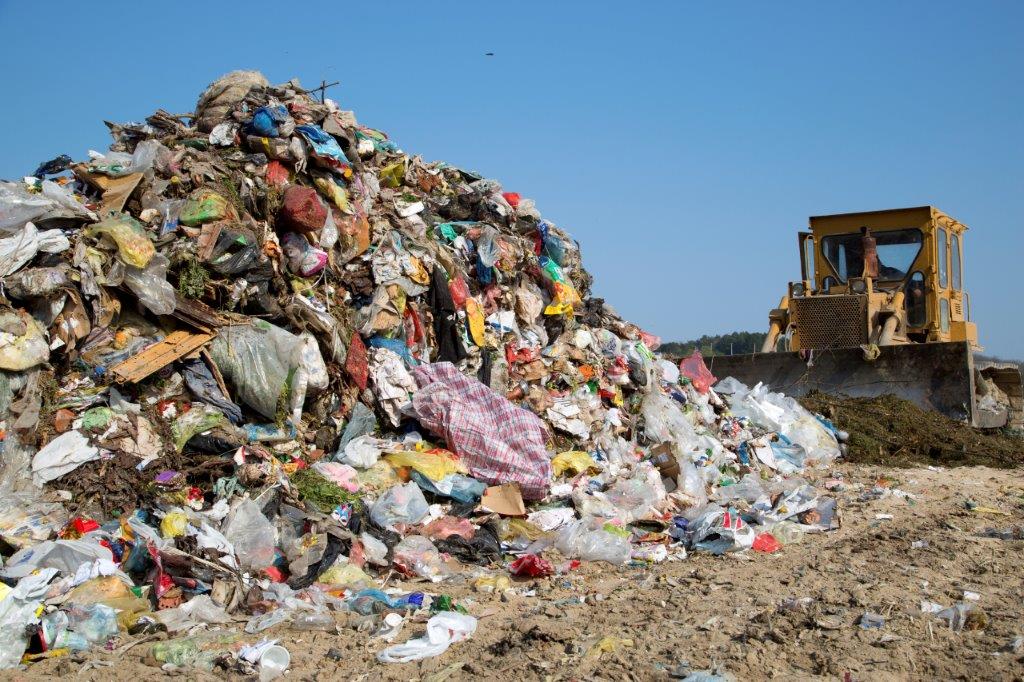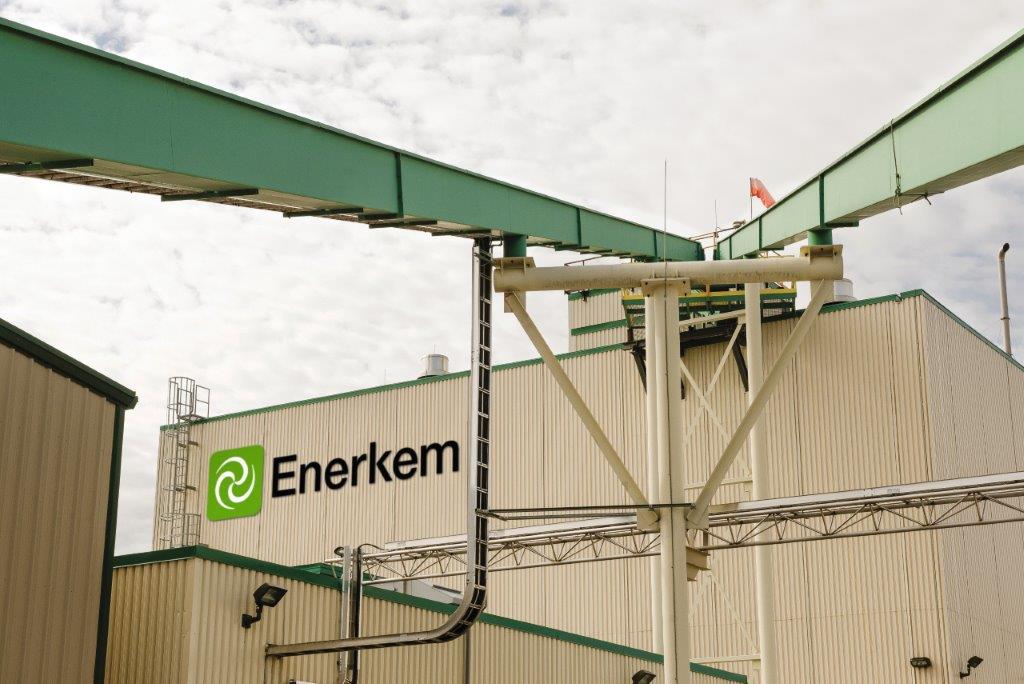Landfills often seem like a necessary evil as a result of our consumption of everyday products. But what if there was a way to reclaim waste from landfills and natural biomass waste and use it to power our lives?
Over the past 20 years, Montréal-headquartered Enerkem has developed and commercialized a unique chemical recycling technology to produce advanced biofuels and circular chemicals from non-recyclable waste and residues of forest biomass. We spoke with Valerie Gonzalo, Public Relations and Communications Consultant, to learn more about this disruptive clean technology company.

Tell us about Enerkem’s mission.
Our mission is to establish Enerkem as a world-class provider of disruptive clean technology to enable the production of biofuel and circular chemicals from waste that cannot be recuperated or recycled. In this way, Enerkem offers an innovative, sustainable solution for waste management, energy diversification, and the implementation of a circular economy.
What inspired you/your founders to start your organization?
Enerkem’s breakthrough technology was initially inspired by the research and development led by Dr. Esteban Chornet, Professor Emeritus at the Université de Sherbrooke in Québec. In the 1940s, Esteban’s father ran sawmills in Mallorca, Spain; the country was then emerging from a long civil war with little access to energy sources. The electricity needed to power the sawmills was produced mainly from sawdust, using a rudimentary biomass gasification process. This was developed into what has now become Enerkem’s unique technology.

What were some of the challenges you/your founders encountered?
Two of the most important challenges we faced were financing our operations and adapting our technology to market requirements. We have met both with great success.
To support our development, we have raised over CA$1 billion in mostly private funding since 2000. The list of our investors includes major businesses and organizations, such as Suncor, Repsol, Rho, Braemar, Monarch Alternative Capital, and Avenue Capital Group, to name but a few.
Since our foundation, we have devoted great efforts to adapt our technology to the needs of the market. We have tested and validated several different feedstocks, from solid waste coming from several municipalities to dozens of other types of residues such as forest biomass. Our technology was rigorously scaled up from pilot to demonstration to commercial stage during a period of over 10 years of disciplined efforts. We clearly succeeded as evidenced by the fact that we are now involved in major industrial projects here and abroad.
What do you consider to be Enerkem’s biggest success?
Our biggest success is the deployment of our technology currently underway in Canada and Europe. We’ve emerged as a small local company from Québec to a world-class player in the field of waste treatment and biofuel production.
Our first plant started its operations in Edmonton in 2016 and is the world’s first commercial-size facility capable of transforming waste into biofuels and circular chemicals. We are now involved in the construction of a second commercial-sized facility in Varennes, Québec. Varennes Carbon Recycling, carried out with a group of strategic partners including Shell as the lead investor, along with Suncor and Proman, will produce 125 million litres of biofuels from 200,000 tons of feedstock made up of non-recyclable waste and residues of forest biomass. Hydrogen and oxygen used in our process will be produced by electrolysis. Québec’s clean and renewable hydroelectricity is an essential component of this innovative industrial complex.
In Tarragona, Spain, Enerkem has joined with Repsol and Suez to create Ecoplanta Molecular Recycling Solutions, a partnership that aims to build a plant to convert non-recyclable waste into biofuels and circular chemicals. This large-scale facility will process approximately 400,000 tonnes of municipal solid waste per year from the surrounding areas and is expected to be operational by 2026. It was recently selected by the European Commission to receive €106 million (CA$140 million) in financial support and Enerkem’s chemical recycling technology particularly impressed the European Commission.
In Rotterdam, Netherlands, Enerkem is now working with Shell and the Port of Rotterdam on a projected plant to produce sustainable aviation fuel (SAF). This project, currently under development, could process up to 360,000 tonnes of waste annually and produce up to 80,000 tonnes of circular fuel.

What makes Enerkem unique?
Enerkem is the first company in the world to design a technology that can, at a commercial scale, produce circular chemicals and biofuels from non-recyclable, non-compostable municipal solid waste. Our solution replaces the use of fossil fuel sources like petroleum and natural gas with sustainable biofuels and chemicals to produce and operate a broad range of everyday products.
As well, our people make us unique. Throughout the years, we have built a dynamic team of specialists and researchers who are now recognized worldwide.
How do you feel your organization makes the world better?
Enerkem’s technology provides an alternative to landfilling waste that cannot be recuperated or recycled. From this feedstock, we can produce biofuels that considerably reduce the carbon footprint of hard-to-decarbonize sectors, such as heavy transportation and commercial air transport.
Nowhere is this better illustrated than in The Sky’s the Limit Challenge, a competition organized by the Government of Canada, where the objective was to encourage research and development aimed at the difficult-to-reduce carbon footprint of air transport, which currently accounts for roughly 3% of total global GHG emissions, according to the Environmental and Energy Study Institute. Enerkem won this competition last April by producing a sustainable aviation fuel (SAF) which lowers GHG emissions by 93%. What’s more, the produced biofuel comes from an iconic source in Canada: forest biomass residues which are discarded in large quantities every year.

Tell us about Enerkem’s goals.
Our long-term vision is to deploy our technology worldwide to help reduce up to 90% of waste currently produced by transforming non-reusable materials into biofuels to power vehicles or manufacture products.
Are there any upcoming initiatives or projects you’d like to share?
Our main focus will be the pursuit of our current deployment in Canada and in Europe through the projects in Varennes, Tarragona, and Rotterdam. With NOVA Chemicals Corporation, we are also conducting a very promising research project on plastics at our Edmonton research centre. The objective is to convert synthesis gas produced from used, non-recyclable plastics to feedstocks for virgin-grade plastics, a significant step toward a circular economy.
What do you most want people to know about your organization?
We are currently in the right place at the right time; we have a unique technology and are developing projects at an accelerated pace in Québec, Canada, and abroad. We have the ability and the obligation to make a difference for the future of our planet. And we are working on it every day.
How can people help or contribute to Enerkem’s mission?
Everyone can play a role in building a circular economy. When consuming, think circular. Be aware that waste will be produced when a product is discarded and favour the one with the lowest environmental footprint.
Consumers can also contribute to our mission by staying informed about the impact current technologies can have on improving waste reprocessing and the production of circular materials such as biofuels. Technology has a major role to play to address the environmental challenges we face. People need to be aware of the evolution of this fascinating, promising world.
This story was featured in the Make The World Better magazine:
Learn about more world-changing individuals and organizations:
- Brands for Better Foundation: Uniting for Impact
- Circular Economy Leadership Canada: Advancing Innovation
- Circular Rubber Technologies: Re-Tiring Rubber Waste
- EcoMeter: Measuring Foodprints to Support Sustainability
- FoodMesh: Rescuing Food for the Sake of People and Planet
- Project Learning Tree Canada: Planting Conservation Literacy
- Susgrainable: Fighting Food Waste with Fibre
- Textile Lab for Circularity: Weaving a Circular Solution
- Too Good To Go: Satisfying Your Appetite for Sustainability


